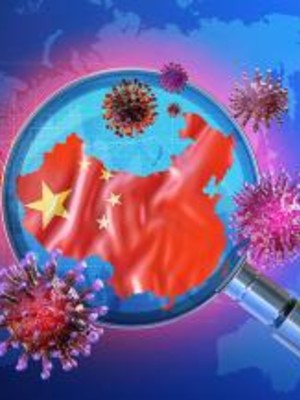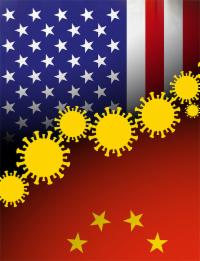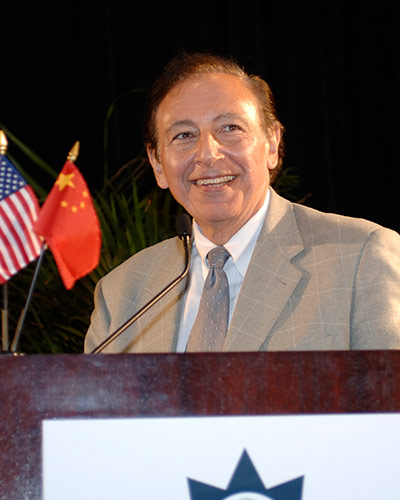March 23, 2023 | Jeffrey Mervis

The National Institutes of Health’s “China initiative” has upended hundreds of lives and destroyed scores of academic careers.
For decades, Chinese-born U.S. faculty members were applauded for working with colleagues in China, and their universities cited the rich payoff from closer ties to the emerging scientific giant. But those institutions did an about-face after they began to receive emails in late 2018 from the U.S. National Institutes of Health (NIH).
The emails asked some 100 institutions to investigate allegations that one or more of their faculty had violated NIH policies designed to ensure federal funds were being spent properly. Most commonly, NIH claimed a researcher was using part of a grant to do work in China through an undisclosed affiliation with a Chinese institution. Four years later, 103 of those scientists—some 42% of the 246 targeted in the letters, most of them tenured faculty members—had lost their jobs.
In contrast to the very public criminal prosecutions of academic scientists under the China Initiative launched in 2018 by then-President Donald Trump to thwart Chinese espionage, NIH’s version has been conducted behind closed doors. Michael Lauer, head of NIH’s extramural research, says that secrecy is necessary to protect the privacy of individual scientists, who are not government employees. Universities consider the NIH-prompted investigations to be a personnel matter, and thus off-limits to queries from reporters. And the targeted scientists have been extremely reticent to talk about their ordeal.
Only one of the five scientists whose cases are described in this article has previously gone public with their story. And only one has pushed back successfully, winning a large settlement against her university for terminating her.
Contact
Institute of Human Virology
Jennifer Gonzales
Public Relations & Communications Manager
jennifer.gonzales@ihv.umaryland.edu
Related stories

Friday, June 25, 2021
Weather Channel: Mystery Thickens Over COVID-19's Origin; Claims of Hidden Early Genetic Information Attracts Further Scrutiny
COVID-19 pandemic has been wreaking worldwide havoc for nearly 20 months now. Yet, Its origin and early spread continue to be one of the most intriguing scientific puzzles of recent history. Claims that the earliest coronavirus strains leaked out from a lab in the Wuhan Institute of Virology in China have resurfaced and subsided multiple times, throughout the course of the pandemic. While many such claims were eventually disregarded as unfounded speculations of conspiracy theorists, allegations have continued against the Wuhan lab having known about the infection and its subsequent threat, much before the world at large was aware.

Tuesday, June 22, 2021
The Washington Post: Wuhan lab’s classified work complicates search for pandemic’s origins
The Wuhan lab has drawn global scrutiny because of its research on bat coronaviruses in the city where the pandemic began. The events have shined a light on a research niche that — in China, the United States and elsewhere — operates with heightened secrecy because of the national security risks of handling deadly pathogens.

Friday, February 12, 2021
The Washington Post: Scientists said claims about China creating the coronavirus were misleading. They went viral anyway.
The spread of the unverified assertions by Chinese scholar Li-Meng Yan, widely dismissed as “flawed,” show how vulnerable scientific sites are to misuse and misunderstanding.

Friday, February 12, 2021
China CDC Weekly: Commentary by Dr. Robert C. Gallo
The Great Coronavirus Pandemic of 2019−2021: the Future and the Requirement for China-America Cooperation - Over the past century, the great pandemics and most epidemics (defined as virus presence and disease induction presenting more than the expected number of infections in a population) were caused by the sudden outbreak of an RNA virus such as the pandemics of influenza, polio, and HIV/AIDS and the epidemics of influenza, Ebola, Dengue, Zika, West Nile, severe acute respiratory syndrome (SARS), Middle East respiratory syndrome (MERS), and Chikungunya.

Monday, December 21, 2020
Robert Gallo of the UM School of Medicine Institute of Human Virology and Global Virus Network Awarded Top Life Sciences and Medicine Prize from China
Robert C. Gallo, MD, The Homer & Martha Gudelsky Distinguished Professor in Medicine, co-founder and director of the Institute Human Virology at the University of Maryland School of Medicine and co-founder and international scientific advisor of the Global Virus Network, was awarded the “VCANBIO Award for Biosciences and Medicine,” a significant and authoritative award in the life sciences and medicine field of China. The elite Prize is jointly presented by the University of Chinese Academy of Sciences and the VCANBIO CELL & GENE ENGINEERING CORP, LTD to push forward scientific research, technological innovation and continuous development in the life sciences and medicine field of China.

Friday, June 12, 2020
The Washington Post: We shouldn’t care who wins the vaccine ‘race’
Dr. Robert Gallo writes a Letter to the Editor to The Washington Post entitled, “We shouldn’t care who wins the vaccine ‘race’,” regarding their June 4 front-page article “Cold War echoes in race for vaccine,” about the “race” among nations, notably the United States, China, and Russia and other European nations for development of a vaccine against the novel coronavirus.

